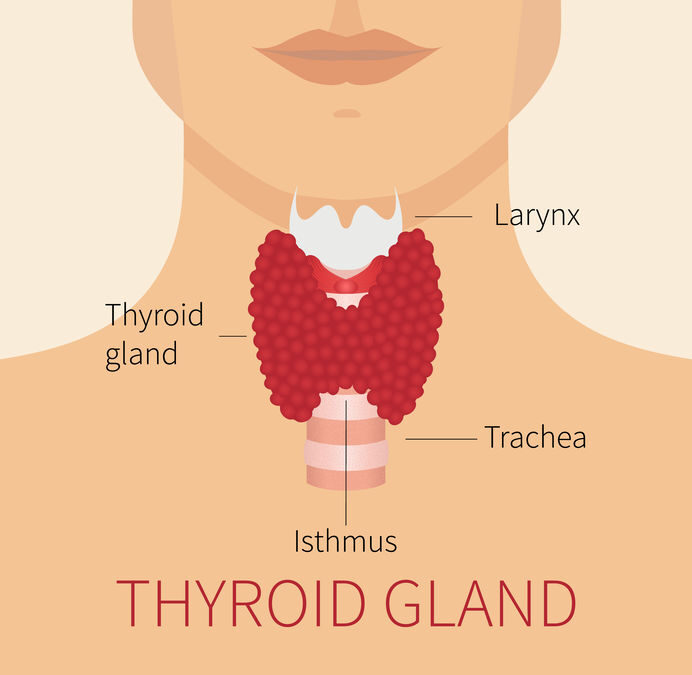In recent years, I noticed a rise in thyroid disorders in my own practice. It has been increasingly on the rise. An estimated 20 million Americans have some form of thyroid disease. The actual number may be higher since many of the symptoms of thyroid disorders such as fatigue, weight gain and constipation overlap with other health conditions.
Let’s take a look at some of the common causes.
Genetics is probably the greatest risk factor for getting thyroid disorders. Having a family member with a history of thyroid disease makes it more likely for it to be passed on. Women in particular are more likely to inherit this gene.
Stress as we know, can cause many health issues and the thyroid is no exception. Stress of any kind causes inflammation that can alter the thyroid hormone function and activity.
Iodine Having the right levels of iodine in the body is important to regulating the thyroid. As a Register Dietitian and Culinary Nutritionist, I understand why people are turning to alternative salts such as sea salt, kosher and Himalayan salts for their high mineral content, but many of these do not contain iodine which is needed to convert the thyroid hormones T4 to T3. Too little or too much Iodine in the diet will have a negative effect on the thyroid.
Low Vitamin D status contributes to thyroid health as it works with other nutritional factors to help regulate immune sensitivity to protect against antibodies. These antibodies that our bodies make could attack our thyroid causing autoimmune thyroid issues such as Hashimoto’s and Grave’s disease. These are the most common forms of thyroid disorders and nutrition can be a key factor to control the thyroid hormones.
Environmental toxins can be a cause behind a failing thyroid. In the last few decades our toxin overload has increased. Toxins in our environment interrupt the conversion of thyroid hormones and create the imbalance, which can increase antibodies that attack our thyroid. Chemicals in our daily life can be found in our water supply, pesticides, food additives, processed foods, phthalates (group of chemicals to make plastic harder and more flexible). Household cleaners, perfumed laundry detergents and let’s not forget nail polish all of which interrupt the function of the thyroid and are general endocrine disrupters. One last group of toxins that play a part in thyroid health are called Halogens. This group contains chlorine found in our city water, bromide which can be found in flour and insecticides and lastly fluoride commonly found in toothpaste.
Gut integrity is linked to our immune system because if the lining of our intestines is vulnerable it’s more likely to allow antibodies to form and attack your thyroid.
Bibliography
https://www.thyroid.org/media-main/press-room/ January 6, 2021. media-main/press-room. Accessed January 6, 2021. https://www.thyroid.org/media-main/press-room.
Curley, Patricia A. “Dietary and Lifestyle Interventions to Support Functional Hypothyroidism.” Inquiries Journal. Inquiries Journal, December 1, 2009. http://www.inquiriesjournal.com/articles/91/dietary-and-lifestyle-interventions-to-support-functional-hypothyroidism.
Jones, David S. Textbook of Functional Medicine. Gig Harbor, WA: Institute for Functional Medicine, 2010.
Wentz, Izabella, and Marta Nowosadzka. “Chapter 1.” Essay. In Hashimoto’s Thyroiditis: Lifestyle Interventions for Finding and Treating the Root Cause. United States: Izabella Wentz, 2015.

